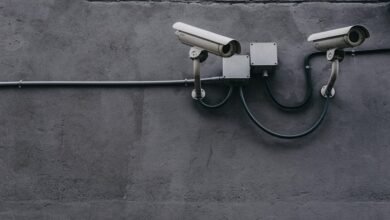Secure Call Monitoring Intelligence Defense Agency 3517997122 3206235693 3275739305 3533103926 3512701475 3791575632

Secure call monitoring is essential for intelligence defense agencies. It employs sophisticated encryption and surveillance technologies to protect communications. By ensuring privacy and integrity, agencies can counteract cyber threats effectively. This system not only builds trust but also boosts operational efficiency. However, as the cybersecurity landscape evolves, new challenges emerge. Understanding these dynamics will reveal the complexities involved in maintaining secure communications in a rapidly changing environment.
Understanding Secure Call Monitoring
Secure call monitoring is a critical component in ensuring the integrity and security of communications within various sectors, particularly in finance, healthcare, and law enforcement.
By implementing robust monitoring protocols, organizations can maintain secure communications while mitigating risks associated with data breaches and unauthorized access.
Such measures are essential for fostering trust and transparency, ultimately safeguarding sensitive information against potential threats.
Technologies Employed by the Agency
Various technologies are employed by the agency to enhance secure call monitoring capabilities. Advanced encryption protocols safeguard communication integrity, ensuring that data remains confidential.
Additionally, sophisticated surveillance systems enable the agency to detect unauthorized access and monitor potential threats in real-time.
These technological implementations are crucial for maintaining the balance between operational efficiency and the protection of individual privacy rights within a secure framework.
The Importance of Communication Privacy
Communication privacy plays a vital role in maintaining trust between individuals and organizations, particularly in environments where sensitive information is exchanged.
Adherence to privacy regulations safeguards communication rights, ensuring that personal and organizational data remains confidential. A breach of this privacy can undermine relationships and operational integrity, highlighting the necessity for rigorous protection measures that align with the principles of freedom and individual autonomy.
Future Trends in Cybersecurity and Defense Strategies
As the digital landscape evolves, organizations must anticipate and adapt to emerging trends in cybersecurity and defense strategies.
Future cybersecurity innovations will focus on proactive threat detection and integrated AI solutions, enhancing defense resilience.
Additionally, a shift towards decentralized security frameworks will empower individuals, fostering a culture of freedom while addressing vulnerabilities.
Continuous adaptability remains crucial in safeguarding against sophisticated cyber threats.
Conclusion
In conclusion, secure call monitoring serves as a cornerstone for intelligence defense agencies by ensuring communication integrity, protecting sensitive data, and fostering operational efficiency. As threats evolve and technology advances, the need for robust encryption, vigilant surveillance, and proactive risk management becomes increasingly imperative. By prioritizing communication privacy, embracing innovative technologies, and adapting to future challenges, these agencies not only safeguard national security but also reinforce the trust necessary for effective collaboration in an interconnected world.





